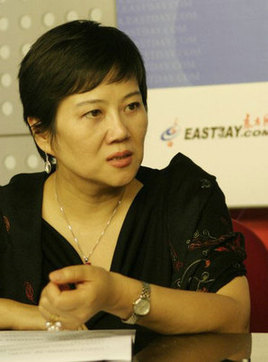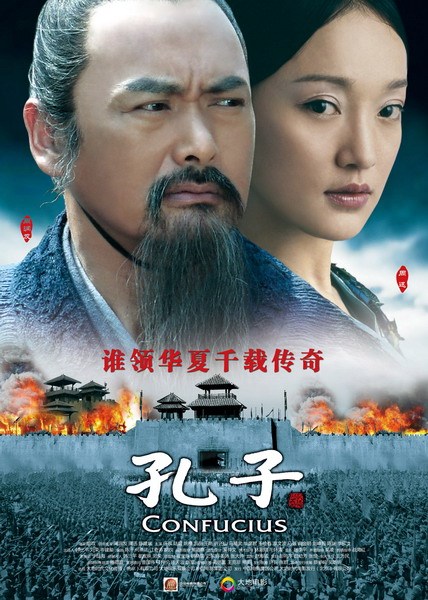Hu Mei brings Confucius to the big screen
|
|
|
Director Hu Mei |
To depict the life of Confucius in a movie is far from easy. Yet that's exactly what veteran female director Hu Mei has done.
Hu's epic movie, Confucius, was the first to take on the task of detailing the life of the ancient sage. It follows the great master's life from age 51 until his death. Released in China's mainland on January 22 of this year, the movie achieved impressive revenue at the box office, amounting to more than 100 million yuan (US$14.7 million). It was also released in Hong Kong, Taiwan, South Korea and Singapore.
The success of the movie can be contributed to Hu's unconventionally bold approach. Her choice to cast Hong Kong star Chow Yun-Fat as Confucius stirred controversy across China. People could not help but doubt that Chow, known for his gun-wielding gangster image, was the right person for the role.
Hu also deviated from history and dramatized Confucius, something no one has dared to do because of his deified status in Chinese history. For example, Nan Zi, an extremely obscure female figure in Confucius's life, is described in only 100-something words in historical records. Yet Hu featured Nan Zi (played by Zhou Xun) in an important supporting role, depicting her relationship with Confucius as a sort of love affair. Hu insisted that such an intellectual female character as Nan Zi is necessary to build a convincing image of Confucius. Dramatization is necessary to make a movie and she cannot stick to history all the time, she added.
Hu's brave methods worked. She was able to make an otherwise didactic story into a string of touching moments and adrenaline-driven battle scenes. Meanwhile, due to Chow's participation, the movie was also marketable in the West.
|
|
|
A poster of the movie Confucius |
A record 2,500 prints of the movie were distributed in China. Unfortunately, as the release schedule clashed with that of the Hollywood blockbuster Avatar, the movie did not earn as much in ticket sales as hoped.
In addition to directing Confucius, Hu is a heavyweight figure in TV costume drama production. In 1997, she directed Emperor Yongzheng (Yongzheng wang chao), a drama about the fourth emperor of Qing Dynasty. The show was an instant hit on CCTV and Hu became a household name overnight. The show still holds the most-watched record on CCTV.
In 2003, Hu directed another TV drama, The Great Emperor Xiaowu of the Han Dynasty (Han wu da di). Focusing on the seventh emperor of the Han Dynasty, the show proved yet another smash hit on CCTV. Hu went on to direct Qiao Family (Qiao jia da yuan) in 2005, featuring a merchant family in Shanxi during the Qing Dynasty. It won “Best drama” at the Seoul Drama Awards in 2006, the first international honor a Chinese TV drama has ever earned.
Hu graduated from the prestigious Beijing Film Academy and launched her career in the 1980s. Successful from the start, the China Radio and Television Association hailed her in 2008 as one of China's most influential directors since the reform and opening up. Together with directors such as Zhang Yimou (Hero), Chen Kaige (Farewell My Concubine) and Tian Zhuangzhuang (The Blue Kite), she is considered to belong to China's fifth-generation directors.
Hu has recently announced her next movie project, The Dream of the Red Chamber.
 0
0 









Go to Forum >>0 Comments